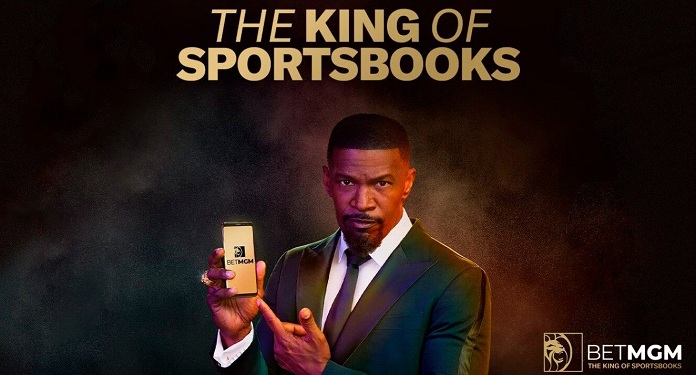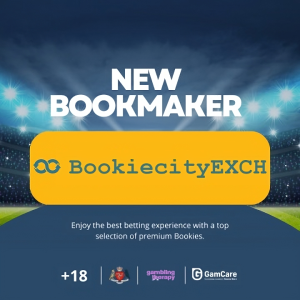BetMGM chief financial officer Gary Deutsch said the business would continue to adopt a “conservative” approach in New York until the state’s “irrational” tax environment changes.
During its latest investor day, BetMGM reiterated its net revenue guidance for 2022 of $1.3bn (£1.06bn/€1.25bn), up from $850m in 2021. Executives also said BetMGM’s earnings before interest, tax, depreciation and amortisation (EBITDA) for the year should be similar to 2021, when the business reported an EBITDA loss of $430m.
However, chief financial officer Gary Deutsch noted that there was a change in the portions of this $1.3bn produced by different states.
“Within this guidance, the revenue mix is different than previously expected,” he said. “We expected lower New York revenue and higher revenue in our other online sports and igaming states.”
Deutsch then went on to outline why BetMGM had taken few steps to establish a foothold in New York. During April, the operator reported $5.0m in revenue from $142.2m in total wagers, placing it fourth in the market with a 4.8% share.
“The specific problem in NY is that it has a high 51% [tax on] gaming revenue and that it applies that rate to ‘phantom’ revenue from promotional credits,” he explained. “That means that the real tax rate on net gaming revenue is well over 100%.
“We simply can’t apply our capital against an irrational investment thesis. Players cannot continue to play if the house always wins, and the house cannot continue to play if it will always lose.”
However, Deutsch added that the business expects a more favourable tax environment to be implemented over time.
“We expect, however, for this tax environment to change and given the positions of Entain and MGM it makes strategic sense to take our time here,” he said.
Chief executive Adam Greenblatt, meanwhile, noted that it appeared unlikely that other states would adopt tax policies similar to those in New York.
“Fears of New York tax contagion are being eased by frameworks introduced in Ohio and Kansas,” he said. “It will be clear over time that these more sustainable tax systems lead to greater levels of play in the regulated market, which is beneficial to all interests.”
As a result of this, Deutsch said, the business has opted for a “conservative” marketing strategy in New York. Instead of spending heavily in the state, marketing investment has been diverted to other states.
This movement of marketing spend was something that chief marketing officer Matt Prevost identified as a key part of BetMGM’s overall strategy. By using results to prioritise where it spends, he said, the operator was able to compete with rivals pumping more into marketing.
“BetMGM spends hundreds of millions of dollars less than our primary competitors, by around $300m to $400m,” Prevost said.
“Central to our approach is flexibility. We limit the number of fixed marketing deals and move money from state-to-state based on performances.”
Greenblatt also added that there could be some concern about the industry over-marketing itself, and urged for caution in acquisition in order to prevent a backlash.
“We have a number of examples of what happens if these issues are not addressed over time: Italy, Spain, the UK,” he said. “The best way to sustain the health of the industry is to take a strategy of more responsible marketing.
“BetMGM is taking steps to work with our industry peers to address this.”
Looking at the first quarter of 2022, Deutsch said revenue was in line with expectations at $271m, 58% ahead of Q1 of 2021.
Deutsch added that the business expects to report positive earnings before interest, tax, depreciation and amortisation (EBITDA) by the end of 2023, though BetMGM does not expect to be EBITDA-positive for the year as a whole.
“In early 2023, the mix of player cohort vintages in the business will tip towards more mature positive-contribution cohorts,” he said.
Greenblatt also addressed questions of whether BetMGM could expand to further jurisdictions such as Latin America, something that he said is not on the horizon.
“Currently BetMGM’s exclusive jurisdiction for all things igaming and sports betting is the US,” he said. “Our shareholders have agreed specifically that BetMGM can compete in Canada but that’s about as far as we’ve got so far. It doesn’t make sense to look south yet.”
The investor day comes soon after MGM Resorts, which owns 50% of BetMGM alongside Entain, bid to acquire European online casino operator LeoVegas for $607m.
Bill Hornbuckle, chief executive and president of MGM Resorts, said at the time that the deal would allow MGM to offer online gambling across Europe and elsewhere outside the US. Greenblatt noted that as the focus was on other markets, the deal would not impact BetMGM in a significant way.
“BetMGM is exclusive in the US, so it doesn’t really affect us,” Greenblatt said. It doesn’t really have an impact on BetMGM at all. MGM and Entain remain committed to us and to our future.
“Where is there an impact? Well north of the border in Canada, LeoVegas has a strong existing position, but that doesn’t really change anything under MGM’s ownership.
“We’re going to continue with our plan and it doesn’t really change anything at the moment.”




